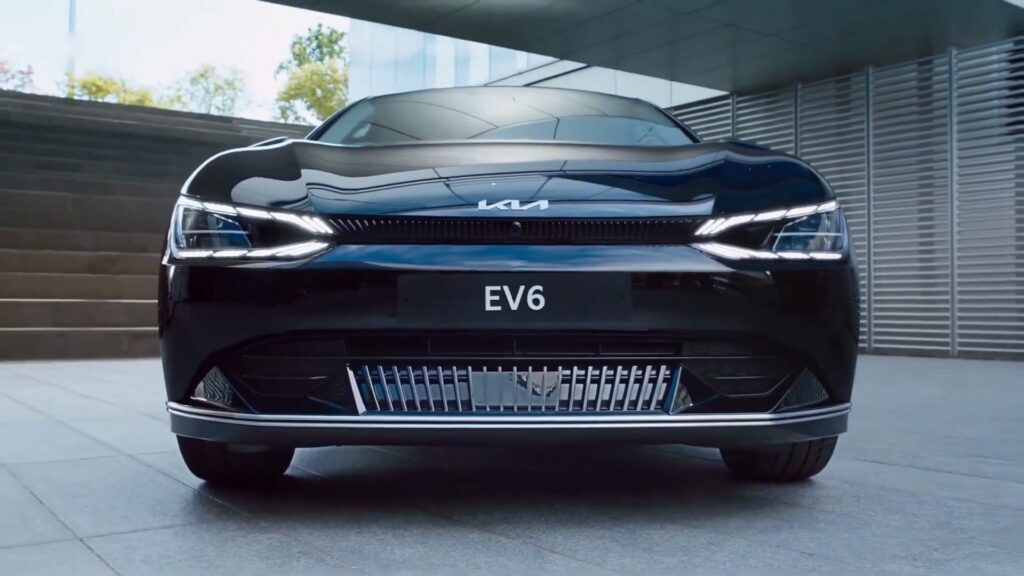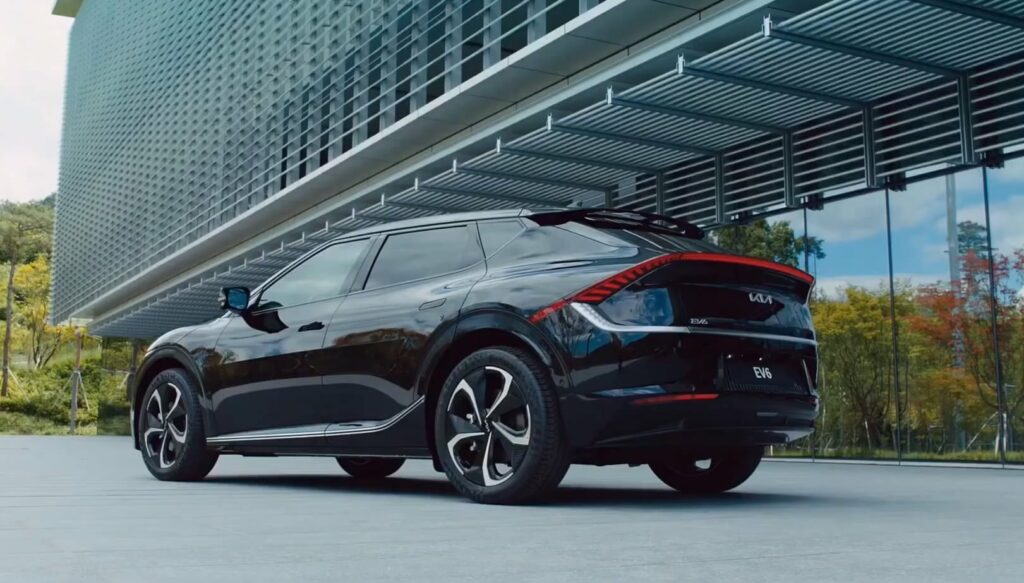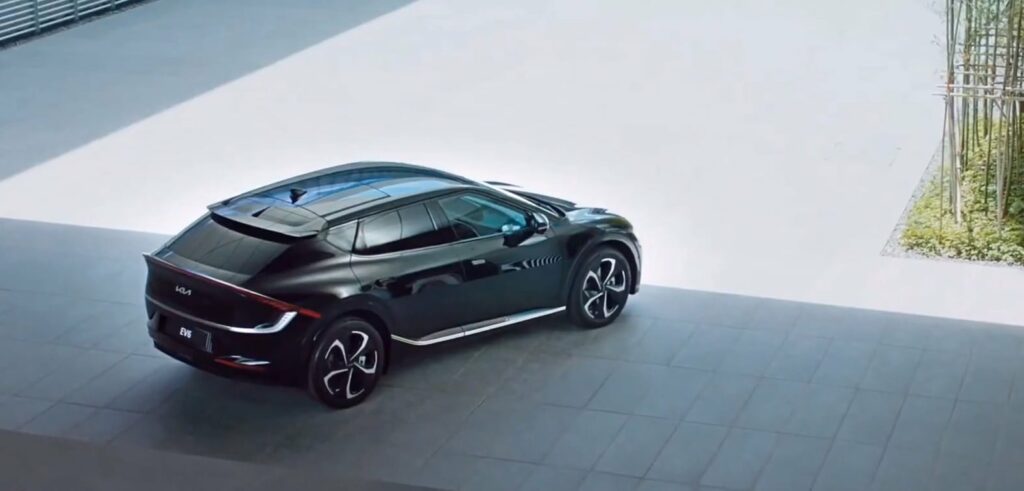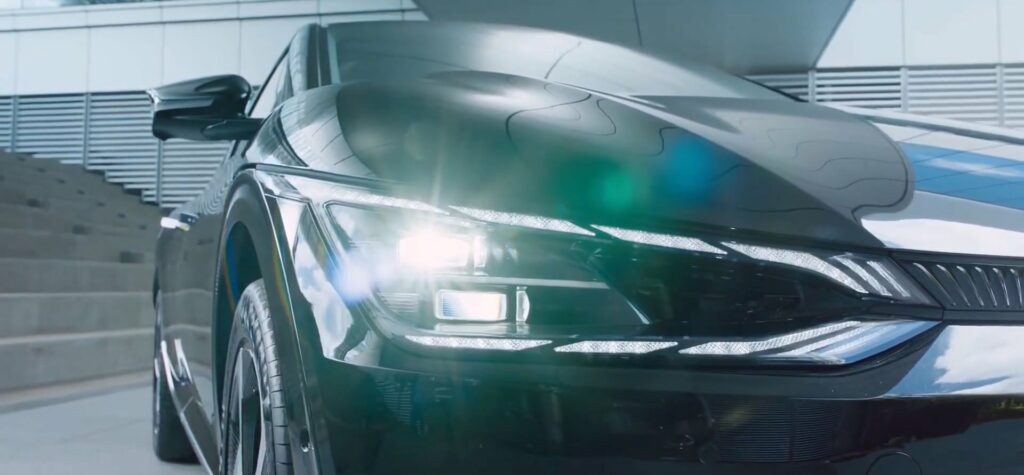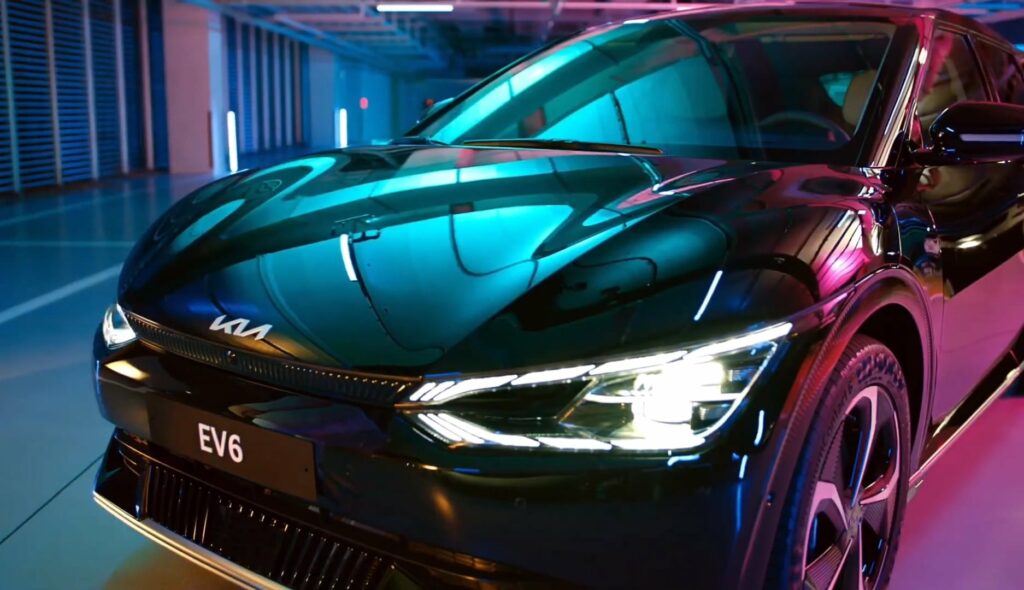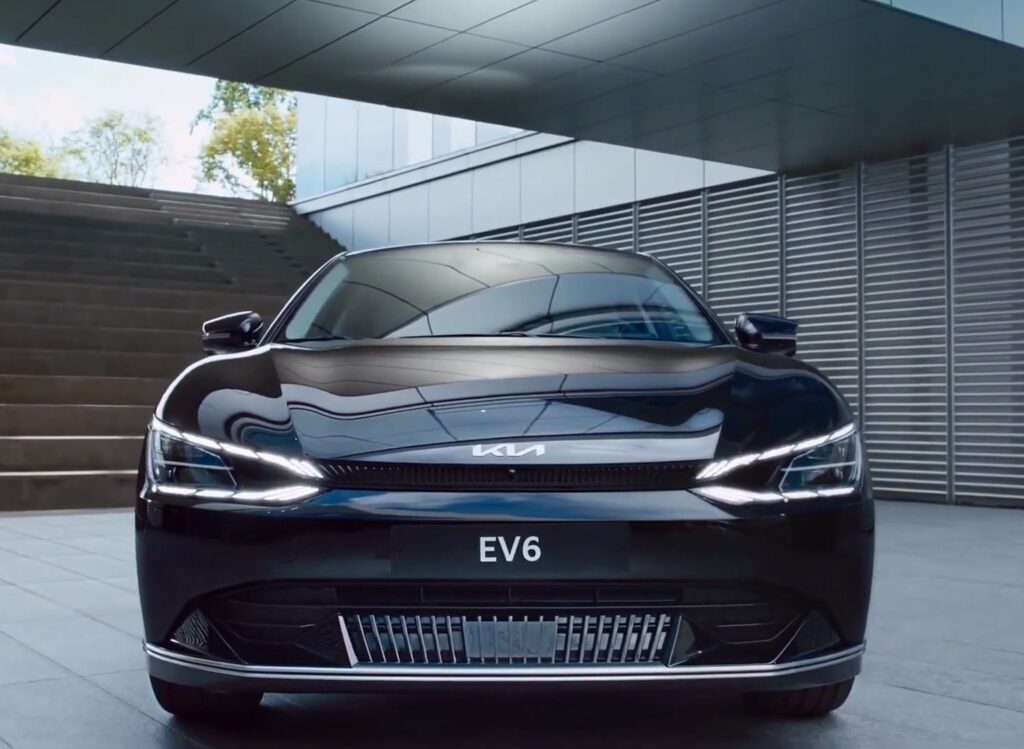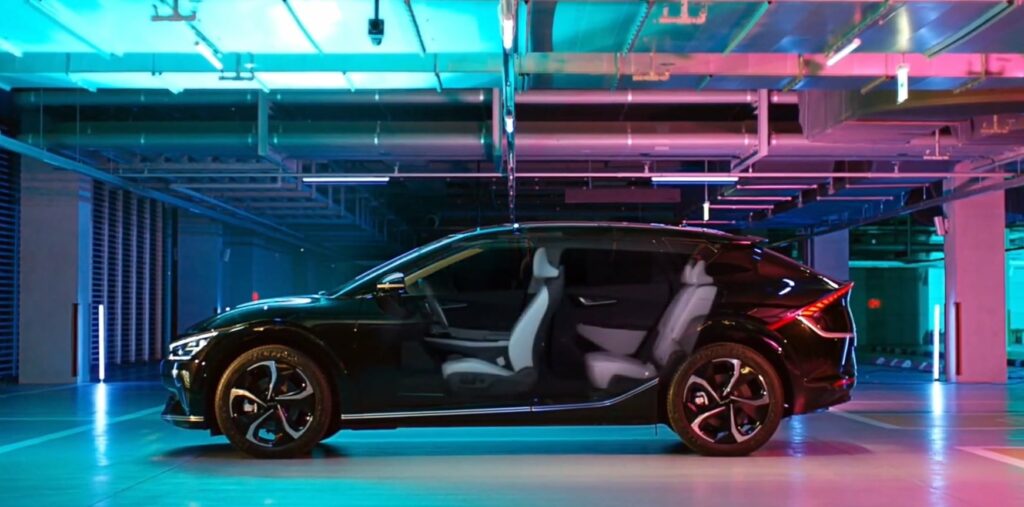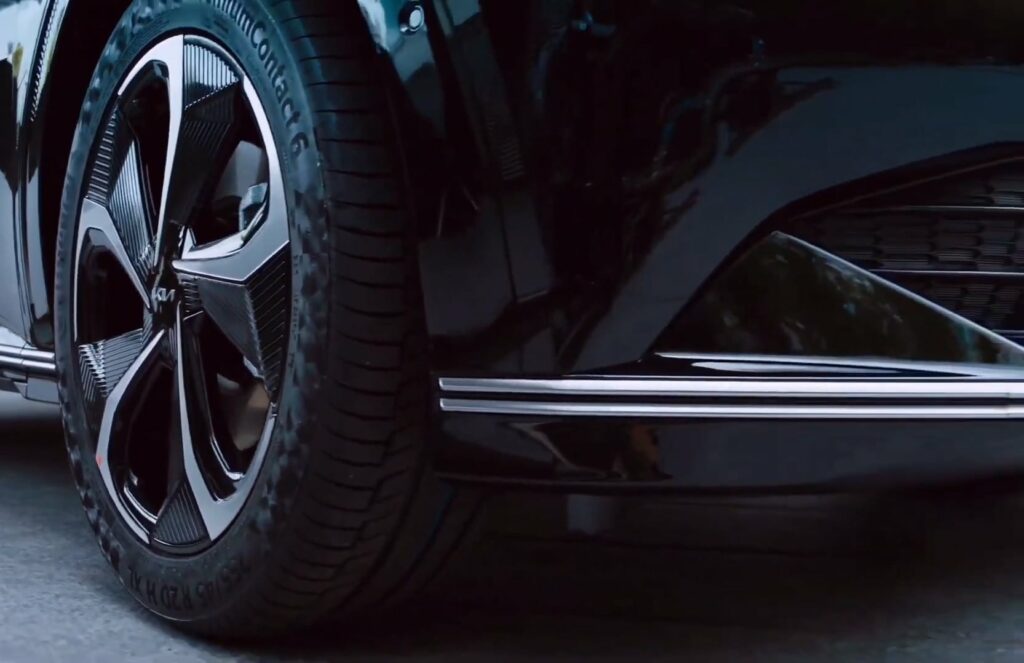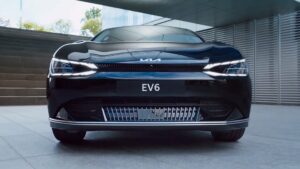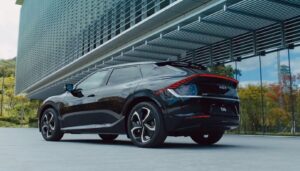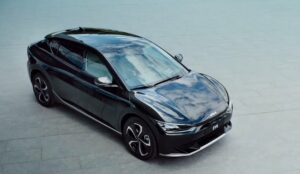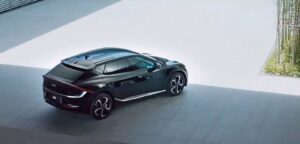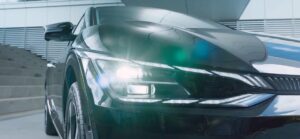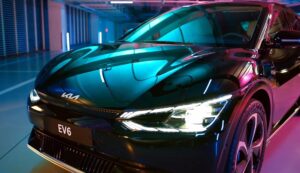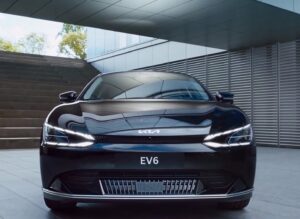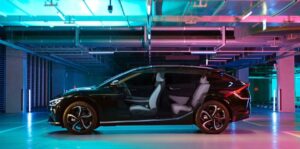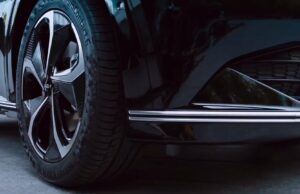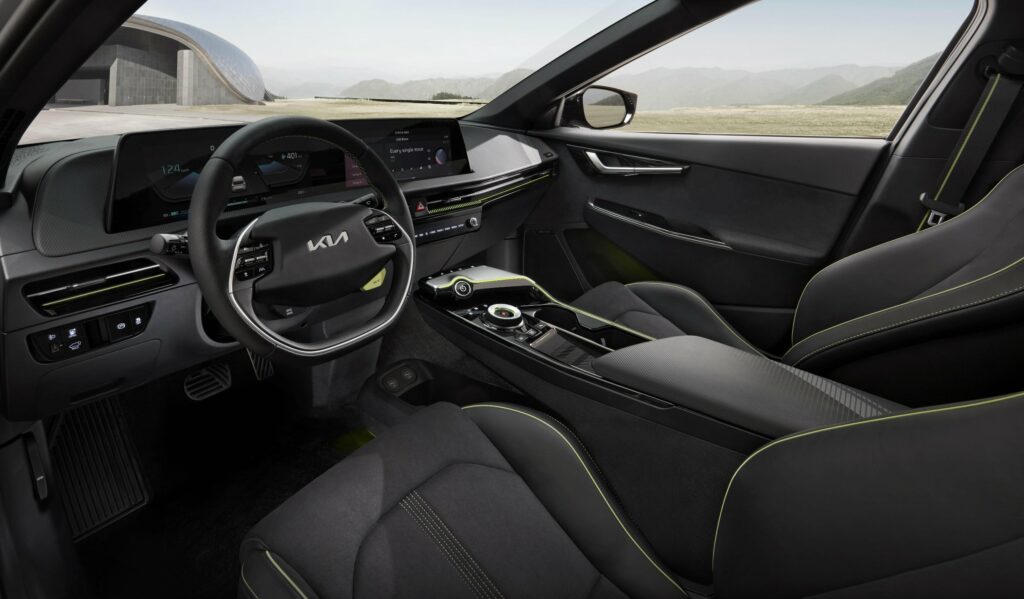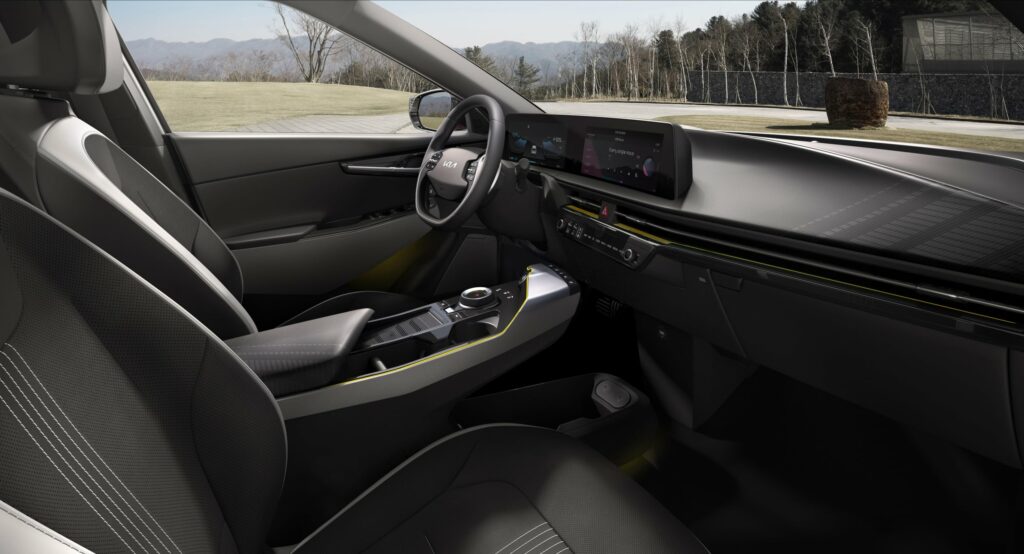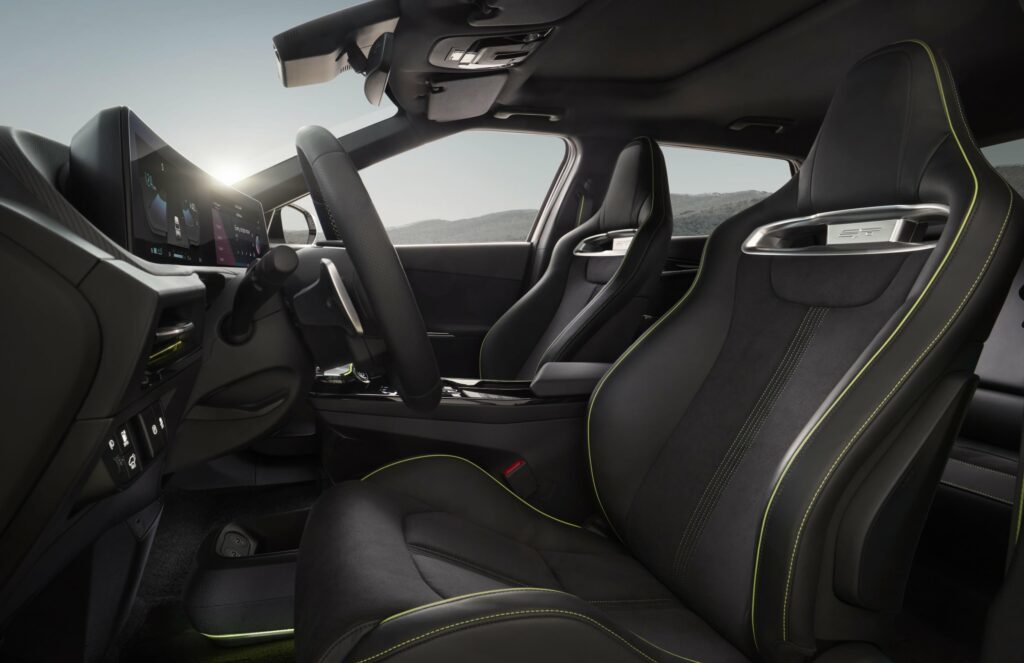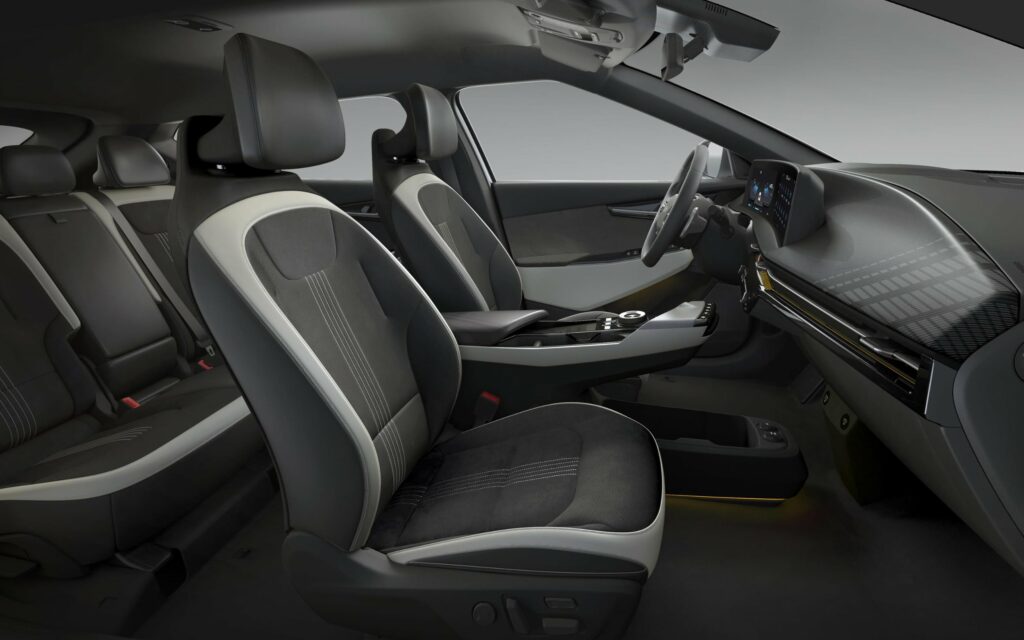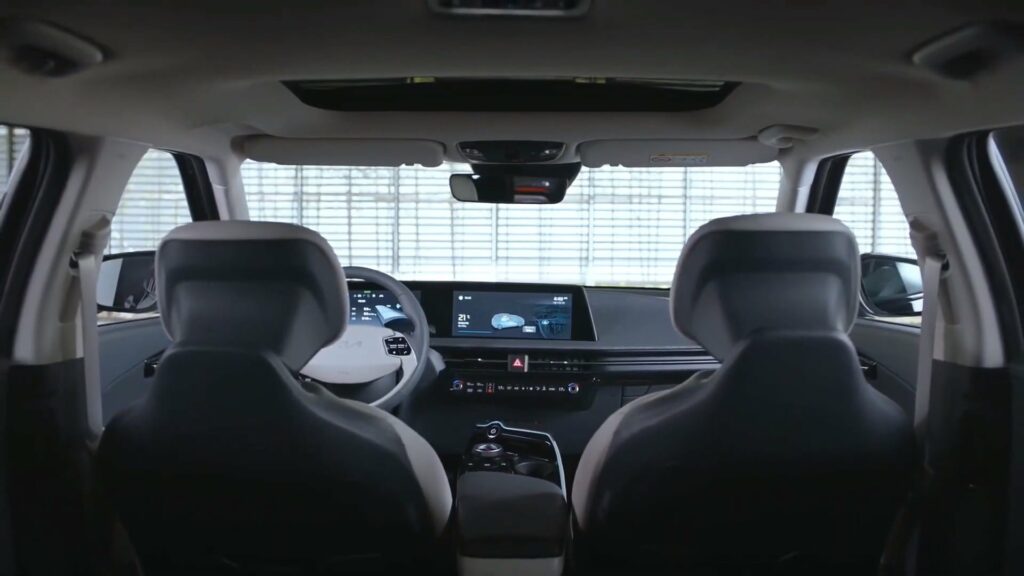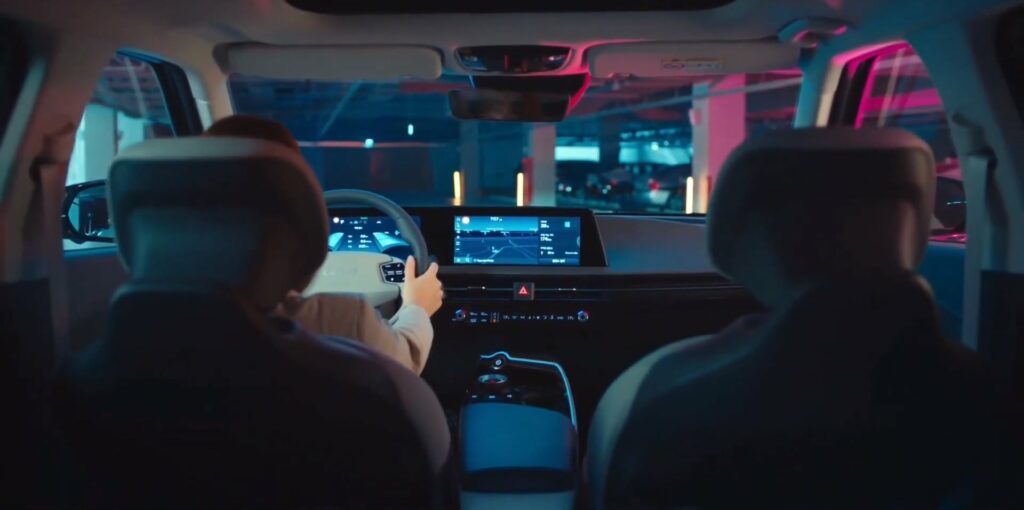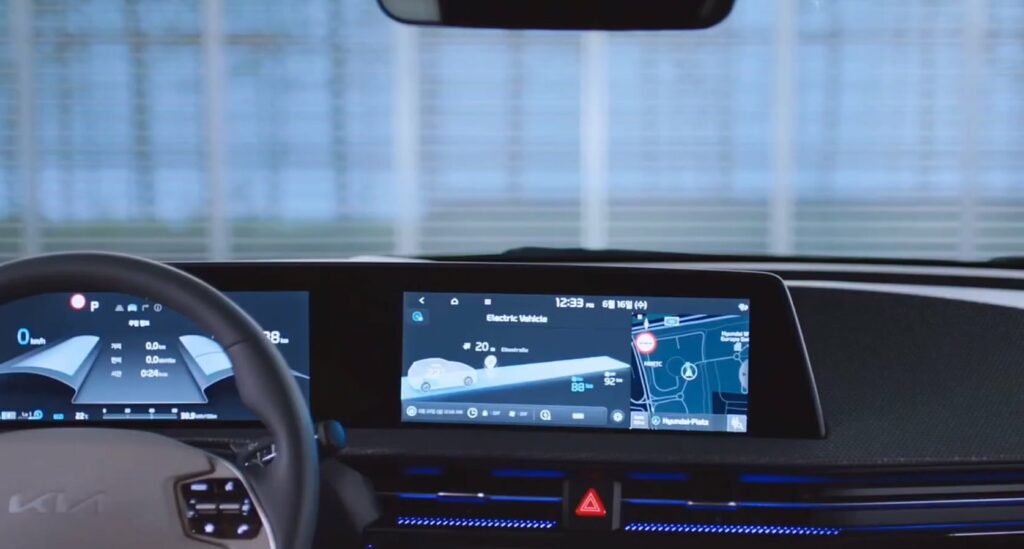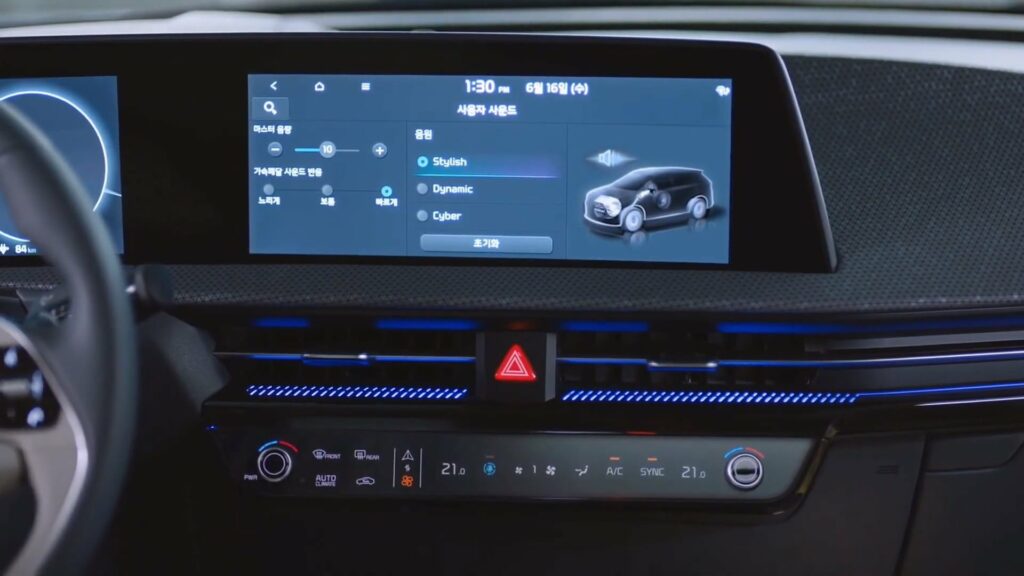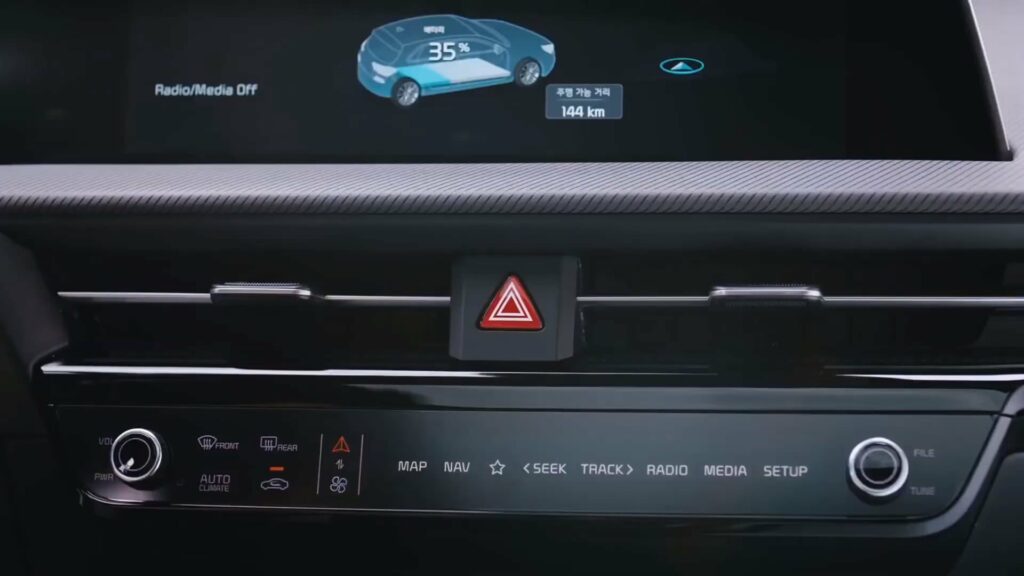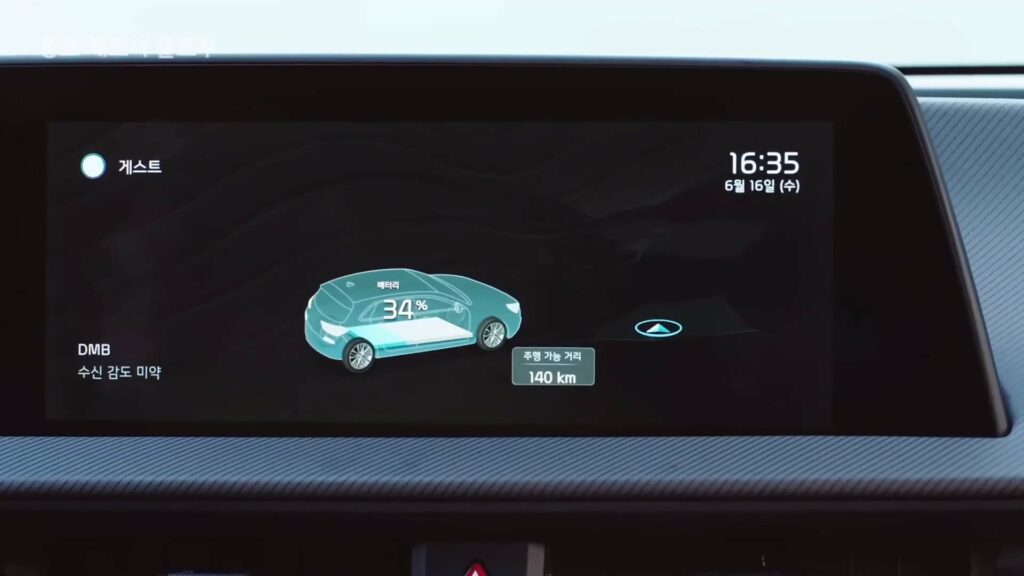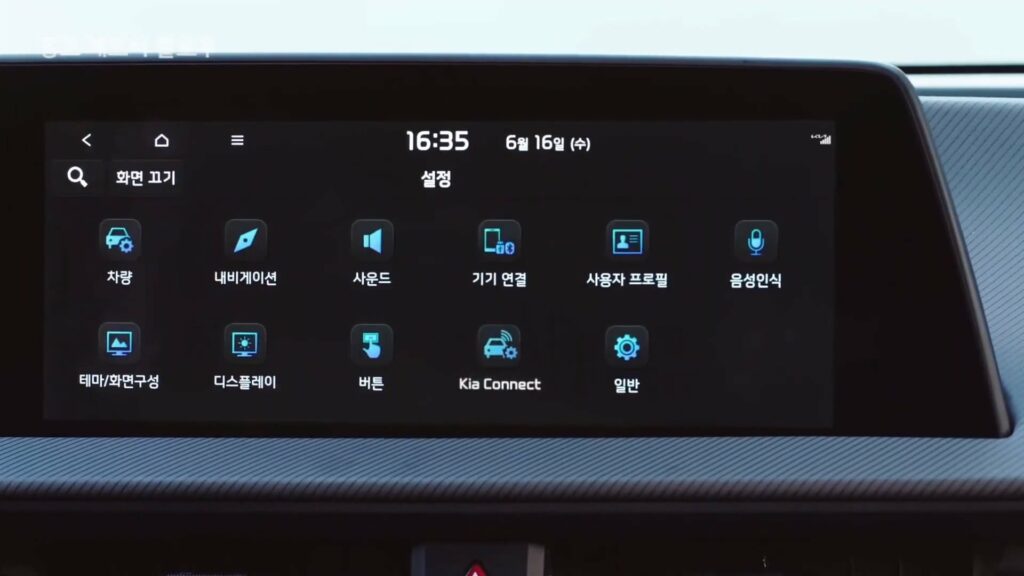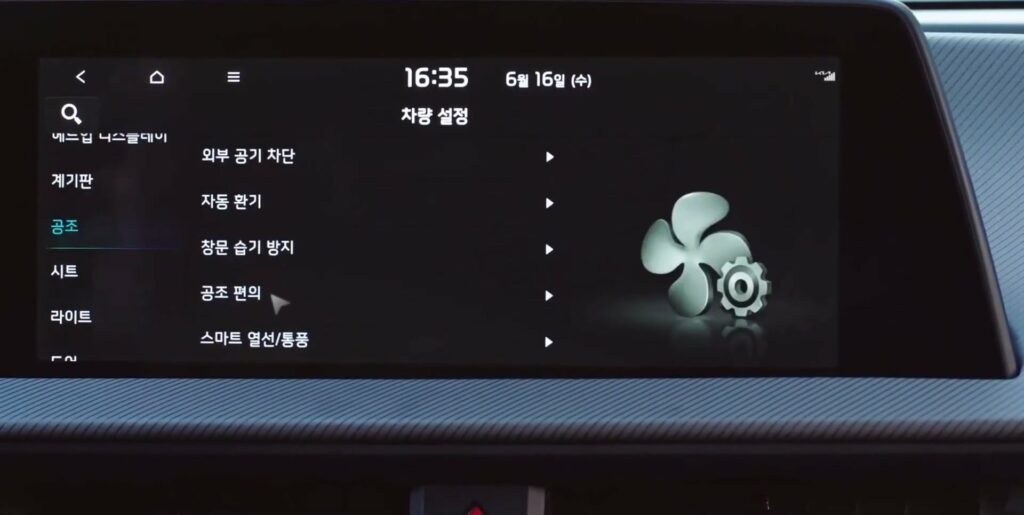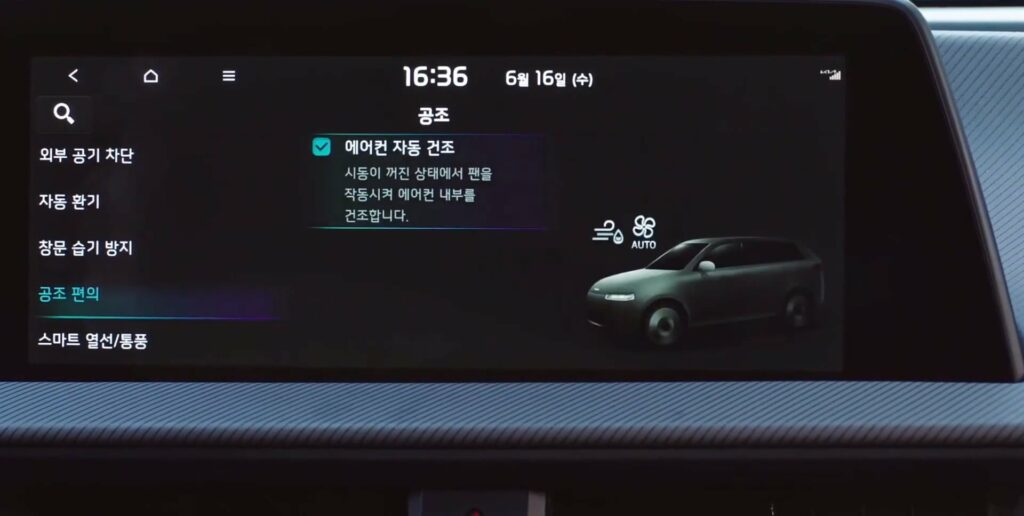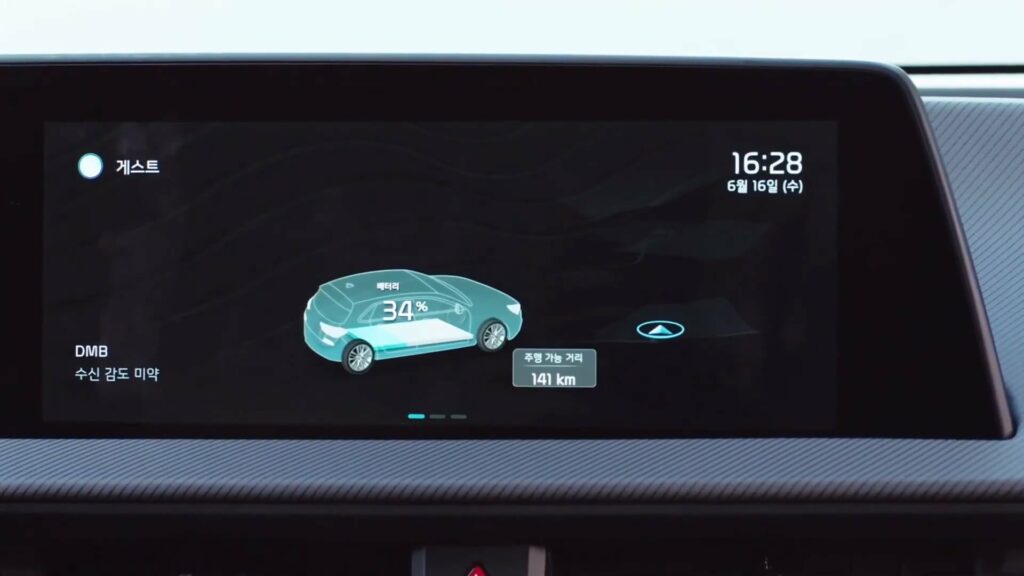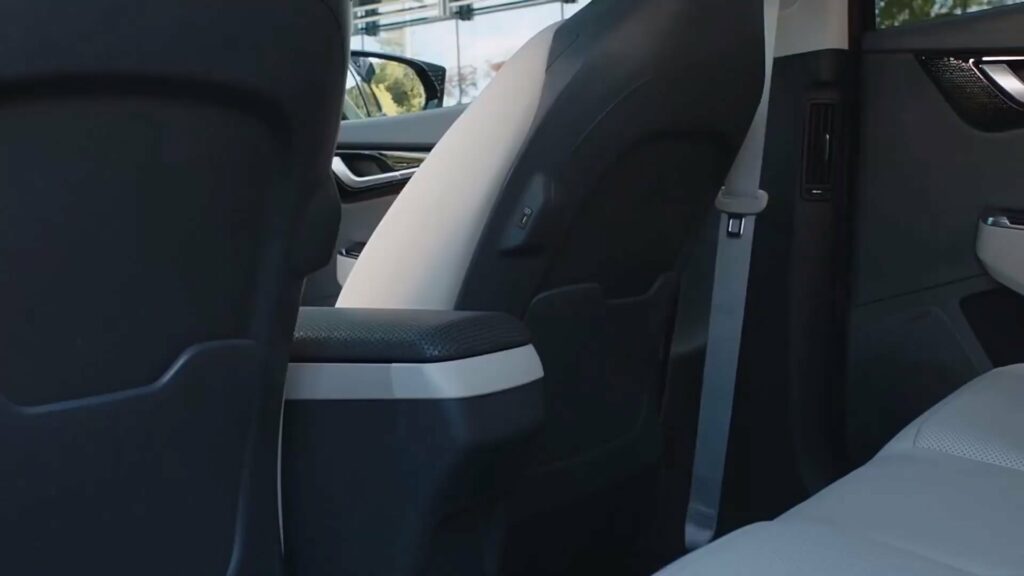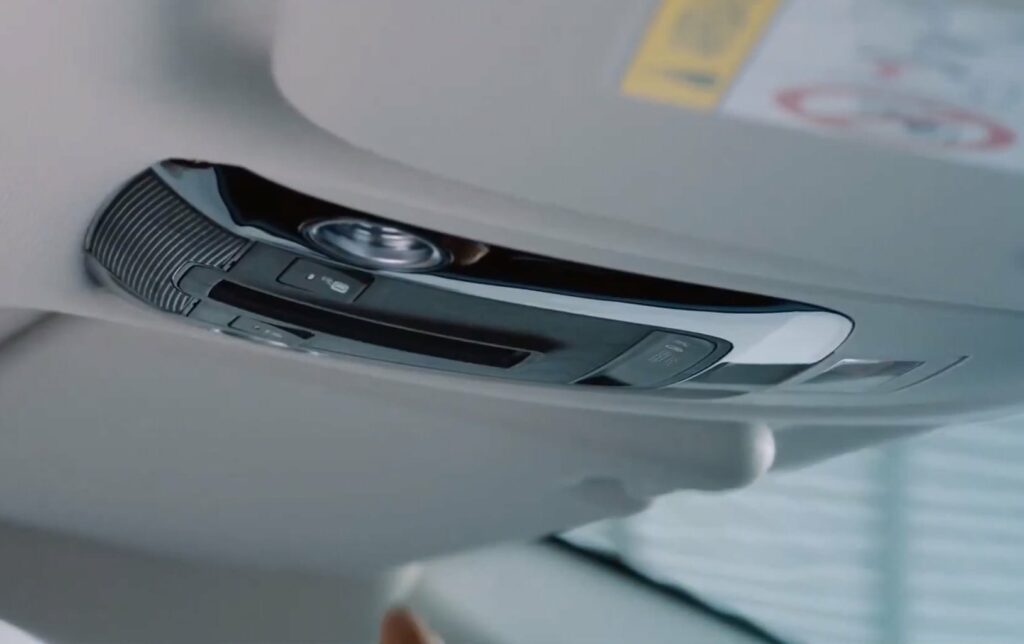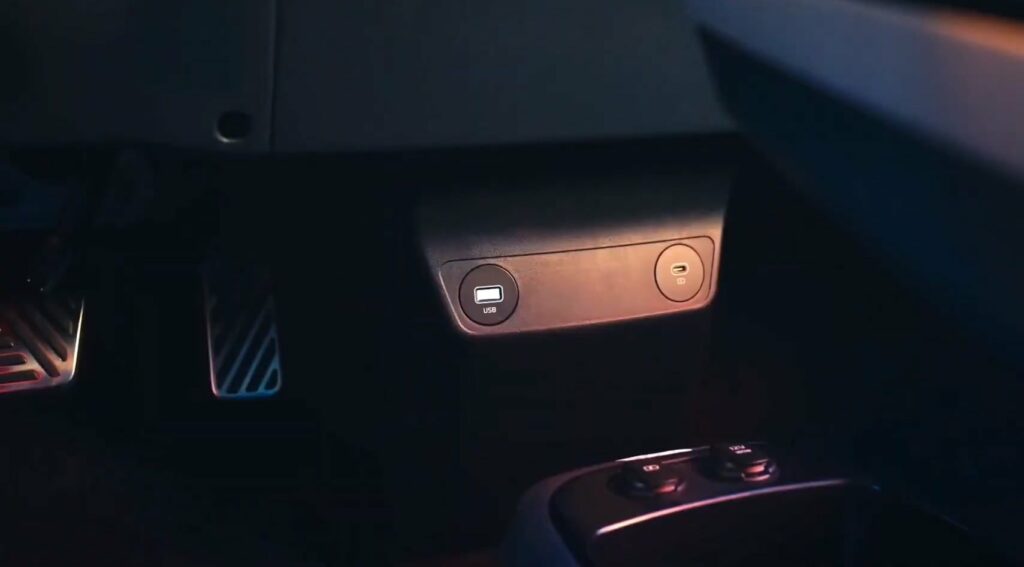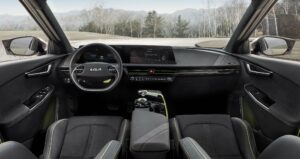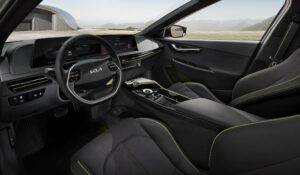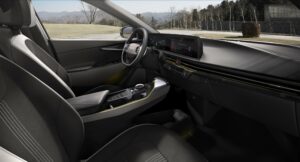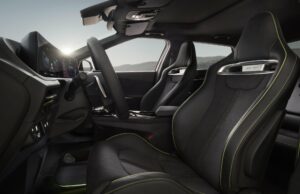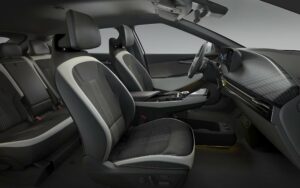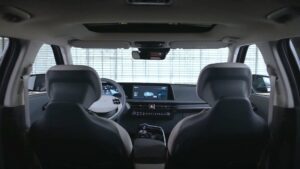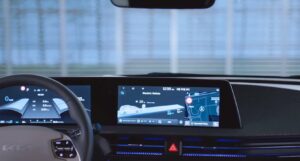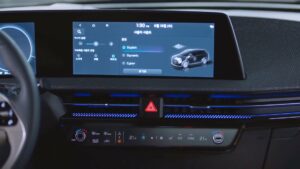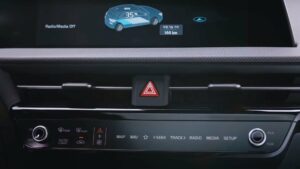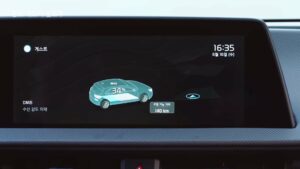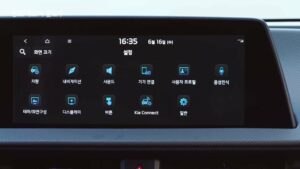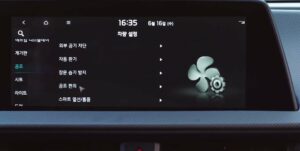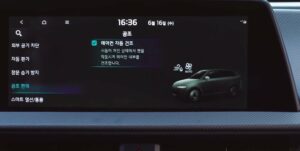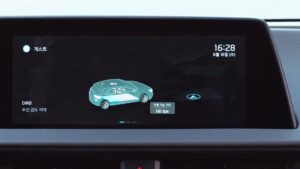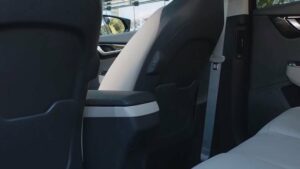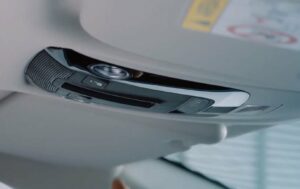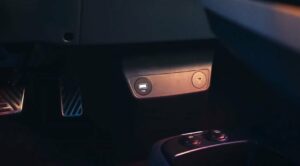Kia EV6 Long Range 2WD
The Kia EV6 Long Range 2WD is an all-electric SUV produced by Kia Motors. It features a single electric motor that delivers 168 kW and 350 Nm of torque. The vehicle is powered by a 77.4 kWh battery pack and has a range of up to 420 km on a single charge, according to the WLTP test cycle.
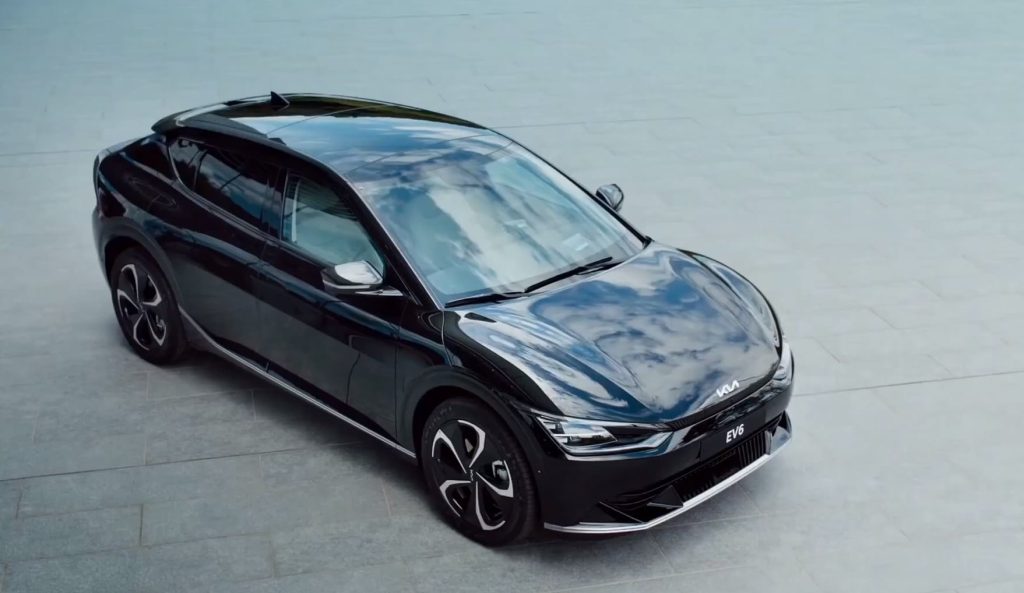
The EV6 Long Range 2WD is equipped with a number of features, including a 12.3-inch digital instrument cluster, a 12.3-inch touchscreen display, a panoramic sunroof, and a premium audio system. It is also equipped with several driver assistance systems, such as adaptive cruise control, lane departure warning, and blind spot monitoring.
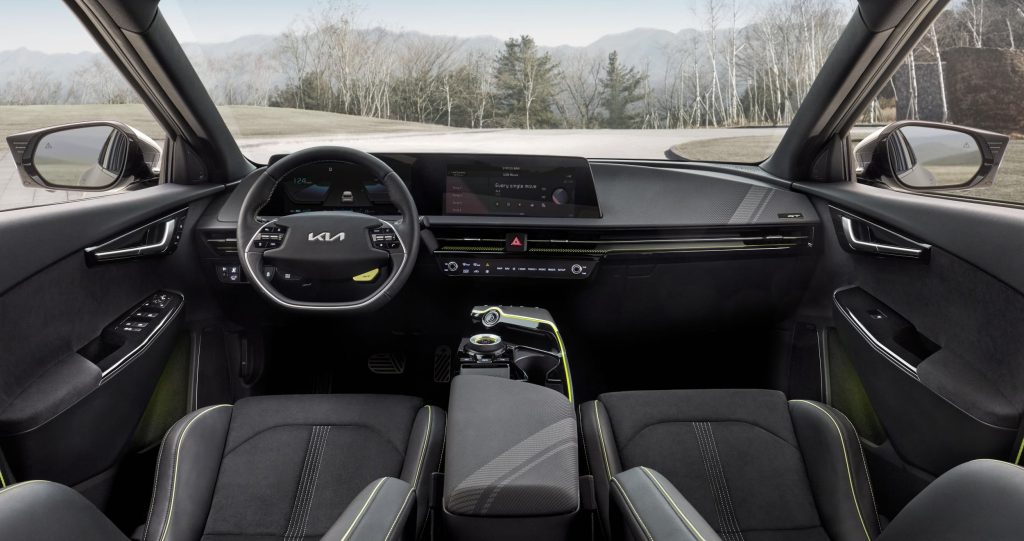
Overall, the Kia EV6 Long Range 2WD is a practical and versatile electric SUV that offers impressive range and a range of features. It has received positive reviews for its spacious cabin, comfortable ride, and advanced technology. It could be a good choice for those looking for an electric vehicle with plenty of range and no need for the extra power of a twin-engine setup.
| Performance | |
| Acceleration 0 – 100 km/h | 7.5 sec |
| Top Speed | 185 km/h |
| Electric Range | 420 km |
| Total Power | 168 kW (228 PS) |
| Total Torque | 350 Nm |
| Drive | Rear |
| Battery and Charging | |
| Battery Capacity | 82.5 kWh |
| Battery Useable | 77.4 kWh |
| Europe | |
| Charge Port | Type 2 |
| Port Location | Rear Side – Right |
| Charge Power | 11 kW AC |
| Charge Time (0->420 km) | 8h30m |
| Charge Speed | 51 km/h |
| Fastcharge Port | CCS |
| FC Port Location | Rear Side – Right |
| Fastcharge Power (max) | 250 kW DC |
| Fastcharge Time (42->336 km) | 18 min |
| Fastcharge Speed * | 980 km/h |
| Energy Consumption | |
| EVDB Real Range | |
| Range * | 420 km |
| Vehicle Consumption * | 184 Wh/km |
| CO2 Emissions | 0 g/km |
| Vehicle Fuel Equivalent * | 2.1 l/100km |
| WLTP Ratings | |
| Range | 528 km |
| Rated Consumption | 165 Wh/km |
| Vehicle Consumption | 147 Wh/km |
| CO2 Emissions | 0 g/km |
| Rated Fuel Equivalent | 1.9 l/100km |
| Vehicle Fuel Equivalent | 1.6 l/100km |
|
Rated = official figures as published by manufacturer. Rated consumption and fuel equivalency figures include charging losses.
|
|
|
Vehicle = calculated battery energy consumption used by the vehicle for propulsion and on-board systems.
|
|
| Real Energy Consumption Estimation between 126 – 258 Wh/km | |
| City – Cold Weather * | 187 Wh/km |
| Highway – Cold Weather * | 258 Wh/km |
| Combined – Cold Weather * | 218 Wh/km |
| City – Mild Weather * | 126 Wh/km |
| Highway – Mild Weather * | 201 Wh/km |
| Combined – Mild Weather * | 161 Wh/km |
|
Energy use for each trip will vary considerably depending on the driver and the conditions. Therefore, we have provided a range of estimates which can be useful in developing an understanding of the potential benefits of this technology. |
|
| Dimensions and Weight | |
| Length | 4680 mm |
| Width | 1880 mm |
| Width with mirrors | No Data |
| Height | 1550 mm |
| Wheelbase | 2900 mm |
| Weight Unladen (EU) | 1995 kg |
| Gross Vehicle Weight (GVWR) | 2420 kg |
| Max. Payload | 500 kg |
| Cargo Volume | 490 L |
| Cargo Volume Max | 1300 L |
| Cargo Volume Frunk | 52 L |
| Roof Load | No Data |
| Tow Hitch Possible | Yes |
| Towing Weight Unbraked | No Data |
| Towing Weight Braked | 1600 kg |
| Vertical Load Max | No Data |
| Miscellaneous | |
| Seats | 5 people |
| Isofix | Yes, 2 seats |
| Turning Circle | No Data |
| Platform | HMG E-GMP |
| Car Body | SUV |
| Segment | JC – Medium |
| Roof Rails | No |
| EV Dedicated Platform | Yes |
Home and Destination Charging (0 -> 100%)
A public charging station is required to use the highest possible charging rate. The EVSE/charging station’s charging capacity affects how long it takes to fully charge the battery. The table below shows all possible options for fully charging the Kia EV6 Long Range 2WD.
In Europe, plugging an electric car into an outlet is often as easy as plugging it into a household outlet, but there are differences from country to country. The table below shows the different ways to charge the Kia EV6 Long Range 2WD, but in some countries some chargers may not be available.
Type 2 ( IEC 62196)

| Charging Point | Max. Power | Power | Time | Rate |
| Wall Plug (2.3 kW) | 230V / 1x10A | 2.3 kW | 39h45m | 11 km/h |
| 1-phase 16A (3.7 kW) | 230V / 1x16A | 3.7 kW | 24h45m | 17 km/h |
| 1-phase 32A (7.4 kW) | 230V / 1x32A | 7.4 kW | 12h30m | 34 km/h |
| 3-phase 16A (11 kW) | 400V / 3x16A | 11 kW | 8h30m | 49 km/h |
| 3-phase 32A (22 kW) | 400V / 3x16A | 11 kW | 8h30m | 49 km/h |
Fast Charging (10 -> 80%)
If you want to enjoy driving an electric car, one of the most important features to consider is the number of miles per hour the car can travel while charged. This is called the “range” of the car. All electric cars have a certain range, even if they are 100% charged. This is because they do not have an internal combustion engine to lean on if you need to drive a long distance.
Max. Power: The maximum power provided by the charging point
Avg. Power: The average power provided by the charging point during a session of 10% to 80%.
Time: the time it takes to charge from 10% to 80%
Speed: the average charging rate during the session of 10% to 80%
Combined Charging System (CCS Combo 2)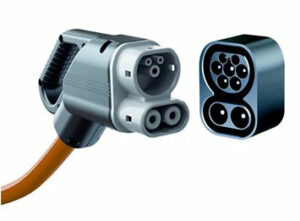
| Charging Point | Max. Power | Avg. Power | Time | Rate |
| CCS (50 kW DC) | 50 kW | 50 kW | 68 min | 250 km/h |
| CCS (100 kW DC) | 100 kW | 90 kW | 38 min | 460 km/h |
| CCS (150 kW DC) | 150 kW | 125 kW | 27 min | 650 km/h |
| CCS (175 kW DC) | 175 kW | 140 kW | 24 min | 730 km/h |
| CCS (350 kW DC) | 250 kW | 185 kW | 18 min | 980 km/h |
| Brand | Kia |
| Model | EV6 Long Range 2WD |
| Body Style | SUV |
| Car Engine | electric |
| Motor power | 168 |
| Maximum Torque, Nm | 350 |
| Battery Energy, kWh | 77.4 |
| Power reserve (NEDC/EPA/WLTP), km | - / - / 420 |
| Level Charging (230/400/DC), hours | - / 8.3 / 0.38 |
| Electrical Acceleration, 0-100 km/h (0-62.1 mph) in sec | 7.5 |
| Top Speed, km/h | 185 |
